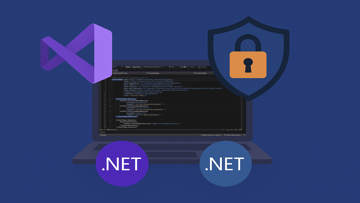OATH Toolkit
Simon Josefsson – Open SourceIntroduction to OATH Toolkit
The OATH Toolkit, developed by Simon Josefsson, is a software tool aimed at providing functionality for generating and validating OTPs (One-Time Passwords) and other related authentication mechanisms. It operates under the principles of the OATH (Open Authentication) initiative, which promotes open standards for secure authentication.
Key Features of OATH Toolkit
- Support for TOTP and HOTP: The toolkit supports both Time-based One-Time Password (TOTP) and HMAC-Based One-Time Password (HOTP) algorithms, which are standards widely used for two-factor authentication.
- Simple Command Line Interface: OATH Toolkit is designed to be used through a command-line interface, making it accessible for both developers and system administrators who prefer a straightforward approach.
- Flexible Library Use: Users can integrate the toolkit into their applications through libraries available in different programming languages, enhancing its applicability across several platforms.
- Secure Storage of Keys: The toolkit includes options for secure key storage, ensuring that sensitive information like secrets remains protected during usage.
- Multi-Platform Support: OATH Toolkit is compatible with various operating systems, including Linux, Windows, and macOS, making it a versatile option for developers everywhere.
- Documentation and Community Support: Comprehensive documentation and community support are made available to assist users in deploying and troubleshooting the toolkit effectively.
User Interface and Experience
The OATH Toolkit is primarily non-GUI based, which means users interact with it via terminal commands. This could pose challenges for users who are accustomed to graphical interfaces; however, its command-line nature is favored by many developers due to the speed and precision it offers. Thus, the learning curve may vary among users depending on their technical expertise.
Installation Process
The installation process for OATH Toolkit is methodical. Users can download the source code from the official repository or install precompiled binaries from various package managers, depending on their OS. The step-by-step installation instructions provided in the documentation ensure that both novice and experienced users can set up the toolkit without difficulty.
Usage Scenarios
The OATH Toolkit can be utilized in various security scenarios:
- Web Applications: Ideal for integrating two-factor authentication into web applications to enhance security measures against unauthorized access.
- API Security: It can be used to protect API endpoints by ensuring that requests require valid one-time passwords generated by clients.
- Scripting and Automation: Administrators can automate tasks that involve OTP generation to improve workflows securely.
Security Considerations
User security is paramount when implementing any authentication mechanism. The OATH Toolkit adheres to industry standards recommended by OATH to ensure secure OTP generation. However, users must also safeguard their shared secrets and ensure that their systems stay updated against vulnerabilities. Regular audits and diligent monitoring of security practices are advised when using this tool in production environments.
Performance Metrics
The performance of OATH Toolkit can generally be regarded as efficient due to its lightweight design. The command execution time for generating OTPs or validating them typically occurs in milliseconds, even under load conditions. Users can expect consistent performance regardless of the number of simultaneous requests handled by their applications.
Integration with Other Tools
Easily integrates with various other security frameworks and systems; OATH Toolkit's ability to work with diverse programming languages means it can act as an effective security layer in existing infrastructures. Examples include deploying it alongside web servers or incorporating it into application back-ends seamlessly.
Community and Support
The community surrounding OATH Toolkit is relatively engaged, with resources such as forums, GitHub repositories, and mailing lists available for support. Users can report issues, seek help for implementation queries, or contribute improvements back to the toolkit's codebase. Moreover, comprehensive documentation adds significant value by offering examples, guides, and FAQs for common implementation challenges.
Conclusion
The OATH Toolkit by Simon Josefsson stands out as a competent tool for developers looking to implement two-factor authentication solutions efficiently. Its support for established standards like TOTP and HOTP combined with a versatile command-line interface allows it to cater to a wide variety of use cases while prioritizing security best practices. With continued community engagement and updates, OATH Toolkit remains a relevant choice in contemporary software development environments concerning user authentication needs.
概要
OATH Toolkit は、 Simon Josefssonによって開発されたカテゴリ その他 の Open Source ソフトウェアです。
OATH Toolkit の最新バージョンが現在知られているです。 それは最初 2010/12/29 のデータベースに追加されました。
OATH Toolkit が次のオペレーティング システムで実行されます: Windows。
OATH Toolkit は私達のユーザーがまだ評価されていません。
最新のアップデート
LastPass 4.141.0
LastPass by LastPass で安全を確保Affinity Publisher 2.6.2.3228
Affinity Publisher:従来のデスクトップパブリッシングの強力な代替手段Affinity Designer 2.6.2.3228
専門家のための強力なベクターグラフィックデザインソフトウェアAffinity Photo 2.6.3
Affinity Photoで写真編集ワークフローに革命を起こしましょう!最新ニュース
最新のレビュー
|
Celestia
セレスティアと一緒に宇宙を探検しよう! |
|
|
SoundMAX
SoundMAXでオーディオ体験を向上させましょう! |
|
|
Undertale
Undertale:他に類を見ないユニークなRPG体験! |
|
|
Free Audio Editor
用途が広く、ユーザーフレンドリーなオーディオ編集ソフトウェア |
|
|
LanguageTool
LanguageTool:AIを活用したライティングアシスタント |
|
|
TextPad
TextPad:すべてのライティングニーズに対応する多用途のテキストエディタ |
|
UpdateStar Premium Edition
ソフトウェアを最新の状態に保つことは、UpdateStar Premium Edition でかつてないほど簡単になりました。 |
|
|
Microsoft Visual C++ 2015 Redistributable Package
Microsoft Visual C++ 2015再頒布可能パッケージでシステムパフォーマンスを向上させましょう! |
|
|
Microsoft Edge
Webブラウジングの新しい標準 |
|
|
Google Chrome
高速で用途の広いWebブラウザ |
|
|
Microsoft Visual C++ 2010 Redistributable
Visual C++ アプリケーションの実行に不可欠なコンポーネント |
|
|
Microsoft Update Health Tools
Microsoft Update Health Tools:システムが常に最新であることを確認してください。 |





